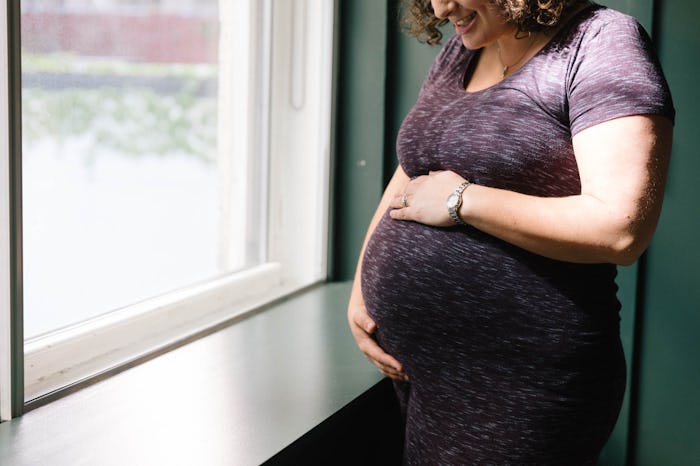Life
These Old Wives' Tales About Conceiving In The Winter Sound ~Magical~
There is a mythology and a superstition out there surrounding just about everything. None perhaps more so than huge rites of passage in life like marriage, fertility, and childbirth. When I was pregnant, my husband's family was very superstitious, and I heard about it, let me tell you. Just for fun, let's look at some of these sometimes illogical, but always fun theories. Here are a few old wives' tales about conceiving in the winter, because you just never know.
Strangely enough, while there are plenty of superstitions regarding the time you conceive, there have also been real studies completed which have suggested that babies born during certain parts of the year are predisposed to certain conditions, at least with more frequency than people born at other times of the year. In the case of children conceived in the winter, that puts childbirth in the late summer and early fall.
While astrology will tell you that children born in this period are less likely to be depressed than other children, according to The Atlantic, and that they're slower to anger — more Steady Eddies than Nervous Nellies — science suggests just the opposite may be true. A study discussed in US News and World Report noted that babies born in this period are more likely to have major health complications than those born in other times of the year. However, another study said that babies born in October are among the world's healthiest.
According to Chinese tradition, the winter is a time of rest. It's a cold period, and therefore you should be acting in ways that warm, like drinking and eating warming foods. Yes, that includes having sex, meditating, and eating bowl after bowl of garlicky root vegetable soup, according to Traditional Chinese Medical practitioners.
Note that they don't prescribe just any sex in the winter. Oh no, they want the sort of mind-blowing, hours-long sessions of making love that forces you to look inward instead of just at the body of your partner. Or, you know, if you're the parent of a toddler, sex that happens with the door closed firmly. Sex wherein you can see on the monitor that your child has reached the drooling stage of sleep. Sure, it might not last hours, but time is relative to parents. That doesn't negate the need for potato soup, though. In fact, I think being a parent is a great reason to hit up Panera — no dishes.
In my own cultural tradition harking back to old eastern Europe, babies born in autumn have "thick blood," and because they come in with the harvest, their lives will be bountiful. Well, if there is a harvest that year. If they come in during a famine year, they're pretty much screwed. Although, I think we can chalk that one up to the fact that babies born in Bratislava during a famine weren't likely to live, let alone get a chance to be bountiful. If you did survive, you were of some freaking strong Slavic stock.
In the mid-south where my mother's family hails from, getting pregnant in the winter meant that you were likely to be wealthy or at least a great farmer, and you were also probably cold, according to Memoirs of The American Folk-Lore Society. Babies born in the late summer and early fall were thought to be among the luckiest children born. This also has a scientific basis — for a long time, people were literally leaner during the winter. Because of this, they didn't ovulate as frequently. If you were born of a winter conception, you were one lucky sperm and egg, according to Nutrition and Fertility.
We may know that old wives' tales about conceiving in the winter are just that — old wives' tales — but it's awesome to look back and see the threads between what makes sense from a logical perspective, and what is mere superstition. Both are awesome, and history is always cool. Just like babies born in the fall.
Check out Romper's new video series, Romper's Doula Diaries:
Watch full episodes of Romper's Doula Diaries on Facebook Watch.
